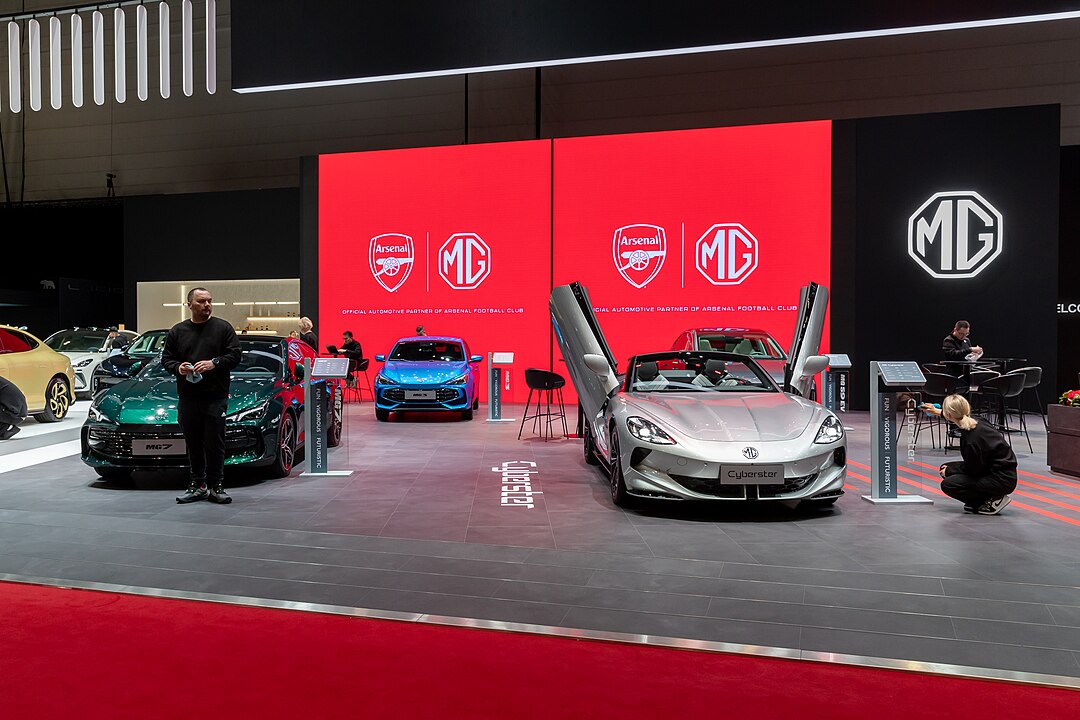
China's SAIC Motor aims to further strengthen MG's position and market share in the Hungarian vehicle market.Continue reading

Following automotive giant BYD, another Chinese company, SAIC, owner of the former British brand MG, could also start building a factory in Hungary. The aim is to avoid customs duties, writes Világgazdaság.
SAIC plans to bring approximately 100,000 car manufacturing capacity to Europe within 18 months. This is partly to strengthen its position and partly to avoid customs duties.
The factory will most likely be located in Hungary, as it did not vote to impose tariffs on Chinese cars,
country manager Andrea Bartolomeo told Il Giornale.
MG currently holds 3.8 percent of the Italian market, with Italian sales second only to the United Kingdom, making it the second most important market for the brand. The goal is ambitious: to capture 50 percent of the forgotten B segment in Italy. The new MG models for 2025, were unveiled at the end of Milan Design Week. The new MG3 and ZS are the flagships, both equipped with the new 1.5-liter gasoline engine without electrification. The interior of the ZS has also been revamped with new materials and an infotainment system.
In 2024, SAIC sold 243,000 cars in Europe out of a global production of 4.6 million cars, achieving a market share of two percent and positioning itself as the leading Chinese manufacturer on the old continent. However, sales of electric cars fell by about a third, with a 35.3 percent tariff added to the 10 percent already in place since November last year.
Another sign of growth for this year is the company’s goal of increasing its dealer network from 60 to 70 and its sales outlets from 130 to 150.
An important step is that thanks to the warehouse in Tortona, Piedmont, 97 percent of spare parts will be available within 24 hours.
Earlier, Viktor Orbán stated that it was a huge blow to the European economy and the German automotive industry that the European Commission decided to impose additional tariffs on electric vehicles from China. The body justified the imposition of tariffs by saying that state support for Chinese electric cars gives Chinese companies an unfair advantage, threatening economic damage to EU manufacturers.
Foreign Minister Péter Szijjártó also emphasized that the European Union’s imposition of tariffs on the Chinese electric car industry was a huge mistake, which had led to isolation. “We want Europe to return to common sense and not hinder cooperation between European and Chinese operators,” he stressed. He highlighted that in 2020, 2023, and 2024, Chinese companies brought the most investment to Hungary. “In our country, 54 modern Chinese large-scale investments worth HUF 7,000 billion (EUR 17.3 billion) have been created in the last ten years with the support of the government, directly creating more than 30,000 new jobs,” the Minister added.
As an example, he mentioned that
electric car giant BYD’s first European factory will start production in Szeged (southern Hungary) early next year, while CATL, which is building one of the continent’s largest electric battery plants in Debrecen (eastern Hungary), will start production this year.
In addition, Huayou Cobalt (supplier of cobalt and its associated products) will start production in the summer and Semcorp (specializing in the development and manufacture of advanced materials, a major supplier to CATL and BYD) in the autumn.
Via Világgazdaság, Il Giornale; Featured photo via Wikipedia